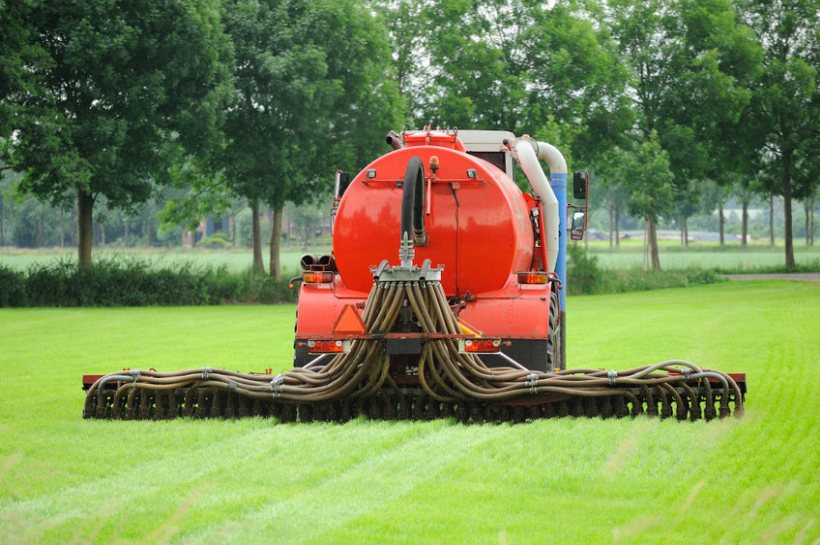
New water regulations planned for Wales will 'kill off' family dairy farms and boost industrial scale dairy production, according to a farming union.
The Farmers' Union of Wales’ (FUW) has warned that tenants, young farmers and small family farms are at risk of the plans, to be rolled out this year.
The Welsh government will introduce a nitrate vulnerable zone (NVZ) designation across the whole of Wales in a move that has angered industry groups.
NVZs are areas within Wales that contain surface water or groundwater susceptible to nitrate pollution from agricultural activities.
Agricultural pollution incidents 'remain very high', according to the Welsh government, averaging over three per week in the last three years.
It said some of these had led to the contamination of drinking water sources and the destruction of plant and aquatic life in parts of waterways.
But FUW Milk Committee Chairman, Dai Miles said the regulations would have massive financial and production impacts for dairy farms.
He said his committee had an overwhelming view that tenants and small dairy farms would most likely go out of production as a result of the all-Wales NVZ.
The anger has triggered Shadow Rural Affairs Minister, Llyr Gruffydd to table a Senedd debate, to be held on 3 March, proposing that the regulations be annulled.
“For many family farms this will be the end of production, as the level of investment needed will be the final straw," Mr Miles said.
"These regulations will decimate the tenanted dairy sector and scupper the plans of many young farmers and farmworkers who want to get a foothold on the dairying career ladder.
"Senedd Members need to understand that when they vote on this issue on the 3 March.”
He warned that the average dairy business in Wales would not be able to afford the extra land and infrastructure needed for the plans.
"[This] will likely be taken over by large companies operating mega dairies that can afford slurry treatment plants and use the redundant small farms as dumping ground for the treated manure.
“A number of Senedd members have spoken out against large herds and ‘super dairies’, and those individuals need to fully understand the implications of supporting these regulations.
"The knock on effect to large parts of the rural economy will be even more dramatic and the effect on suppliers and those other up-stream industries will have far reaching consequences.”
However, the Welsh government said in January that the industry has had the past four years to address the issue of pollution.
The Minister for Rural Affairs, Lesley Griffiths said agricultural pollution had affected water bodies across Wales for 'far too long'.
"I am determined to act to protect the Welsh countryside, while supporting our farmers that want to do the right thing," she said.
"We continue to face a rate of more than three agricultural pollution incidents per week, and against such a backdrop, we are bound to do all we can protect the public and the environment.
"This also provides an opportunity for farmers to uphold exceptional standards that in turn will bolster the image of Wales’ agricultural industry."
Initial 'good practice requirements' for the NVZ roll-out will be introduced from 1 April 2021.
